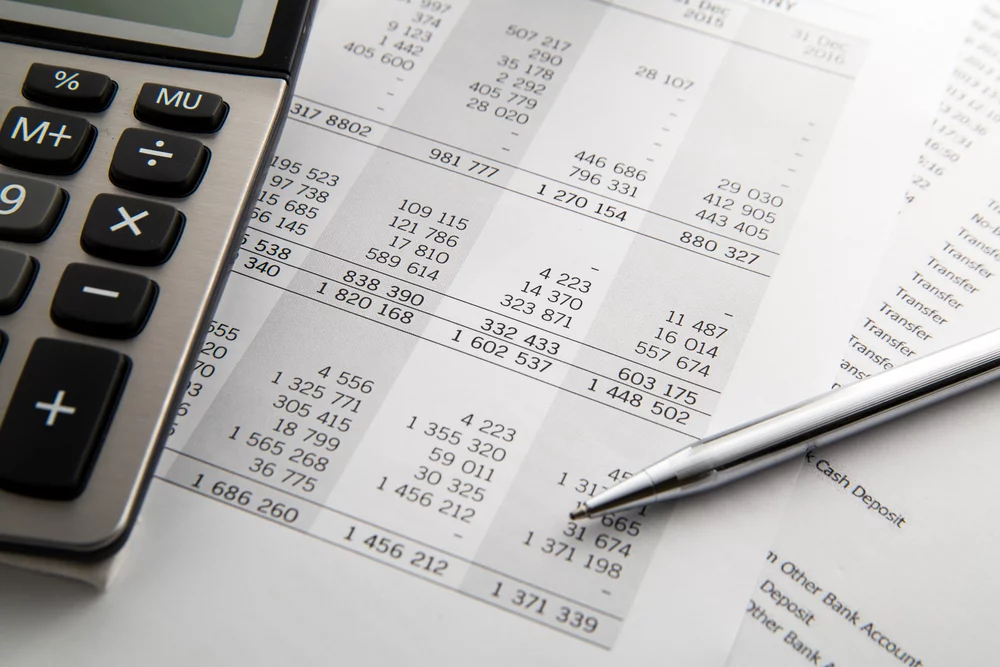When you are buying an accounting practice there are several factors to consider and the process should not be taken lightly. Before you finalize the purchase of any accounting business, it is crucial to understand every aspect of the firm.
A firm may look good in person, but taking a deep dive into the details and paperwork of the firm can paint a different story.
The due diligence process of buying a CPA firm helps you gain a full understanding of the firm and ensure that it is the right firm to meet your personal and professional goals. Performing due diligence helps assess the risk of buying the firm and showcases the value and opportunity.
An experienced broker can walk you through due diligence and point out any interesting details or red flags to be aware of before the sale is finalized.
Field due diligence is typically fairly time-consuming and detailed. It tends to only be done when the deal is actually viable. However, that doesn’t mean that you can’t walk away from the deal if due diligence unearths information that changes your opinion about the sale.
Due diligence puts everything on the table so that you as the buyer have a clear view of exactly the investment you are making and the return on investment you may expect to receive. It isn’t something to rush through.
This CPA firm due diligence checklist covers 10 crucial aspects of due diligence to check before purchasing a CPA firm:
1. Structure of the Firm

Before you buy a firm, be sure to fully understand the structure of the firm and how it operates. This includes knowing how the firm is legally established as a business and how the ownership is divided.
A firm with a single owner is very different than a firm that has multiple owners, each with various degrees of equity and involvement. Be clear about exactly what portion of the firm you are buying.
Look through the firm’s business plan to understand its goals and vision, as well as its history and how it has changed over time.
Find out how the firm is structured, including the reporting structure and general workflow. This phase of due diligence is also a good opportunity to find out the involvement level of the current owner.
Some practice owners are hands-off and only come into the office for meetings and special occasions, while others are on-site and work with clients for 80 hours a week.
The current owner’s work schedule doesn’t dictate the involvement of the future owner, but it can provide an idea of the workload and culture of the firm and how much employees and clients expect to see the owner.
2. Check the Financial Statements

CPA firm acquisition can’t go through without looking at the firm’s financial statements. These documents share everything about how the firm brings in money, keeps its money, and spends its money.
During due diligence, spend plenty of time determining the value of a CPA firm by going through the bank accounts, balance sheets, and tax returns. These documents will highlight any issues with the firm and provide an honest view of the firm’s assets.
Look at multiple past years of documentation to see how the firm has changed over time and get a clear view of the valuation of the firm.
Financial statements show what assets the firm currently has and has had in the past, but they are also powerful in making projections for the future. When gathering these forms during the due diligence process, look at how numbers and revenue have changed over time. That information can be expanded to the future as you consider growth potential.
Financial records can also highlight a firm’s productivity and show if it is wisely using its money or if it isn’t productive in how it uses its resources.
3. Get to Know the Employees

The staff is a crucial aspect of a CPA firm’s success. Employees include the accountants, auditors, tax preparers, and administrative staff, plus anyone else who is employed by the firm to keep things moving.
Your due diligence must include a list of the entire staff, their roles, their salary, and how long they have been with the firm. You’ll also want to know what staffing needs must be filled in the immediate future and if anyone has an outstanding job offer.
Keeping all employees on staff isn’t guaranteed when buying a CPA firm. Make sure you know what your options are with employees, such as if you are required to keep them all on or if you can let a few go if you have other staff members in mind.
Some employees may be under Do Not Compete agreements, which may affect how you handle their employment. Get information on what contracts need to be re-negotiated and any specific clauses that need to be included in those deals.
The current owner may also be able to provide candid feedback about employees with insights on who should stay to help transition to new ownership and who can be let go if needed.
Look through the employment agreements and employee handbook to understand current employee policies regarding things like benefits, compensation, and performance reviews.
Due diligence can also include on-site interviews of various employees, especially senior accountants and managers who will transition with the sale. These interviews can provide valuable information about the current state of employment.
4. Know Your Client’s Needs

One of the most valuable parts of a CPA firm sale is the client list. Your due diligence should include understanding the full client list and how loyal they are to the firm. The client list can be very telling about how the firm is run and how the money comes in.
The most resilient firms have a diverse client list and bring in money from multiple top clients instead of having one client represent the majority of revenue. Go in-depth on the client list to understand their size, potential, and needs.
You can also gain information about each client’s relationship with the firm and the services they often need. Some clients may just be verbally loyal, while others may have actually signed a contract to keep the firm on retainer or have them prepare their taxes for the next five years.
Looking through the client list will also inform you of the type of client and if they come from the same industry or are more diverse. You can also get an understanding of how long they have been connected to the firm and how much time is usually spent on their projects.
Long-standing clients are more likely to stay loyal to the firm during the ownership transition.
A strong understanding of the client list ensures the firm is a good fit for your interests and abilities and gives you an idea of how the firm spends its time and the direction it can go.
Understanding the loyalty of current clients also informs your decisions about how much time and money to invest in marketing to new clients and spreading the brand of your newly purchased firm.
5. Prepare Legal Information

Aside from the financial information, due diligence should also uncover the legal details of the firm. Find out about any past legal issues the firm may have experienced, including lawsuits from clients and employees.
Check that the firm isn’t facing any current or future legal issues that could require significant time and resources to address.
During due diligence, you can also consult with a lawyer about the firm’s potential liabilities. If the lawyer notices any questionable practices about how the firm is run or how it handles its money, that could be a sign that the firm faces a higher risk for future legal action.
6. Investigate the Cash Flow

Of all the numbers to crunch in a CPA firm’s financials, one of the most pressing is its cash flow. A firm’s cash flow represents how much money it has to spend and the liquidity of its funds.
Look for information on what payments will be collected in the next 30 days, as well as what bills are due in that same time period. The more cash that comes in, the better shape the company is in.
An accounting firm can look good on paper at first glance, but if most of its assets are actually tied up in accounts that can’t be touched, it could lead to problems down the road.
7. Maintain Fair Billing and Pricing

In order to have accurate projections of future revenue, you must know the firm’s pricing structure. Understand the fees for various services so you know how much clients are being charged and how much of that is actually coming back to the firm.
A new owner doesn’t have to agree with the exact current pricing model and has the power to change the pricing to whatever they would like. However, raising rates drastically or immediately could potentially turn clients away and hurt the firm.
Compare the firm’s purchase price to other firms in the area to ensure they are fair and in line with the local averages. You can also take a look at which accountants and auditors bring in the most money and have the highest billable hours so you can better understand where the money comes from.
Due diligence should also highlight the billing processes of the firm.
Some firms send invoices right after the service is performed, some bill monthly, and others offer client retention with a monthly fee. Different firms have different payment processes and understandings that affect when and how the money comes in.
Make sure you are clear about the billing practices and that they are fair before finalizing the sale.
8. File Paperwork and Client Information

Purchasing a CPA firm comes with lots of paperwork. Your due diligence should include looking at the paperwork of old audits and tax preparation—this paperwork will soon become yours, and it tells the story of what the firm has been through and how it operates.
Before the sale is final, you should understand how the firm keeps client information and documents. If you find missing or disorganized paperwork or documents that look like they have been changed over time, that can be a red flag about the organization and integrity of the firm.
The current owner may not have to show you all of its client files before you officially own the CPA practice, as they could be risking sharing private information.
However, you should be able to see a sample of client files so that you can understand and verify the quality of the working papers. In some cases, you may be required to sign a non-disclosure agreement before viewing the paperwork.
9. Take Inventory of Equipment and Office Supplies

As part of your due diligence efforts, take a full inventory of the physical assets of the office and its equipment and supplies. New firm owners can come in and completely overhaul the interior of the firm, but that requires time and money.
Get a full list of exactly what is included in the practice for sale, including everything from chairs and desks to computers and copy machines. The list should also include the itemized value of each piece of equipment, as well as its age and condition.
10. Study Applicable Accounts Receivable

Accounts receivable typically aren’t included in the sale of an accounting firm, but sellers may be willing to let you look at them to get a better understanding of how clients pay and which clients are slow to pay.
This information likely won’t affect the sale of the firm, but it helps create a full and accurate picture of how the firm operates and interacts with its client base. Accounts receivable can also play into your understanding of cash flow and the liquidity of assets.
Don’t forget to follow these 10 steps for due diligence when buying a CPA firm. Due diligence is vital to protecting yourself before buying an accounting firm and ensuring that you are making a wise financial and business decision.
Take your time during due diligence and consult with your broker to identify any potential issues or questions before it’s too late.